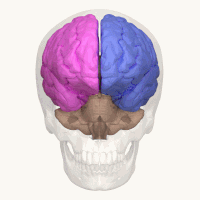
Usefulness of familiarity signals during recognition depends on test format: Neurocognitive evidence for a core assumption of the CLS framework
Sign Up to like & getrecommendations! Published in 2020 at "Neuropsychologia"
DOI: 10.1016/j.neuropsychologia.2020.107659
Abstract: Familiarity-based discrimination between studied items and similar foils in yes/no recognition memory tests is relatively poor. The complementary learning systems (CLS) framework explains this with the small difference in familiarity strength between targets and foils.… read more here.
Keywords: familiarity; framework; test format; recognition ... See more keywords

Explaining Memory Amplification: Is It All About the Test Format?
Sign Up to like & getrecommendations! Published in 2018 at "Clinical Psychological Science"
DOI: 10.1177/2167702617744326
Abstract: Trauma-exposed people commonly exhibit a “memory amplification” effect, endorsing exposure to more traumatic events over time. Studies reporting this phenomenon have typically relied on checklists, where participants read event descriptions and indicate (yes/no) their exposure.… read more here.
Keywords: negative photos; memory amplification; test format; test ... See more keywords

Test format effects: a componential approach to second language reading
Sign Up to like & getrecommendations! Published in 2019 at "Language Testing in Asia"
DOI: 10.1186/s40468-019-0082-y
Abstract: BackgroundThis study aims to empirically answer the question of whether the role of sub-reading skills changes depending on the test format (e.g., multiple-choice vs. open-ended reading questions). The test format effect also addresses the issue… read more here.
Keywords: reading test; test; test format; format effects ... See more keywords

Test Format and Local Dependence of Items Revisited: A Case of Two Vocabulary Levels Tests
Sign Up to like & getrecommendations! Published in 2022 at "Frontiers in Psychology"
DOI: 10.3389/fpsyg.2021.805450
Abstract: Local item dependence (LID) is one of the most critical assumption in the Rasch model when it comes to the validity of a test. As the field of vocabulary assessment is calling for more clarity… read more here.
Keywords: local dependence; levels tests; vocabulary levels; item ... See more keywords

The screen inferiority depends on test format in reasoning and meta-reasoning tasks
Sign Up to like & getrecommendations! Published in 2023 at "Frontiers in Psychology"
DOI: 10.3389/fpsyg.2023.1067577
Abstract: Influential work has confirmed screen inferiority in reading tasks that reading on screen is less productive than reading on paper. Recent researches suggest that poor cognitive performance in screen environments may be primarily due to… read more here.
Keywords: reasoning tasks; inferiority; screen inferiority; meta reasoning ... See more keywords